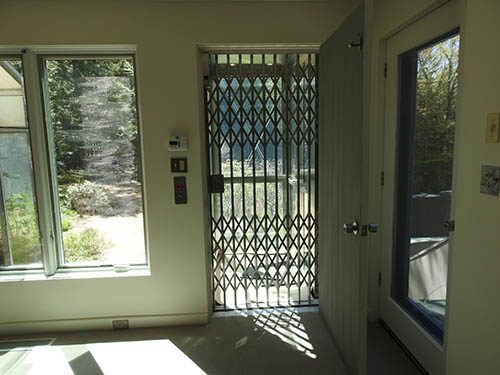When properly installed and maintained, a home elevator enhances the livability of any residence by providing a convenient means for long-term accessibility. Perhaps you are considering the addition of a residential elevator to boost the value of your property, to provide access to all levels of the home or even as an investment which allows you to stay in your home on a long-term basis.
As a conscientious homeowner, you will most likely research options to optimize your dollars spent and to decrease the overall home elevator cost. If you have a background that seems to coincide well with installing an elevator, you may be tempted to purchase a home elevator kit and take on the project yourself. While you may perceive that do-it-yourself home elevator installation is a task for which you are qualified, it is important to be aware that there is far more complexity to correctly installing an elevator than meets the eye. Since a high level of expertise is required in several key areas—and because the safe function of the installed elevator is crucial—purchasing a home elevator kit and installing it yourself is risky and not advisable as a do-it-yourself project.
Home Elevator Installation Considerations
As you learn more about the factors involved in home elevator installation, take the following items into consideration:
- Residential elevators are complex devices and should be installed and serviced by factory trained and licensed technicians.
- Other professionals often involved include: architects, engineers and contractors and builders for proper hoistway measurement and to appropriately adapt the home elevator to the design and structural requirements of the building and the site.
- A home elevator must meet national and local code and a local elevator installer will be aware of all current requirements.
- Working on an elevator yourself is dangerous and will often negatively impact the terms of any warranty it may be under.
- Self-installed home elevator kits may raise a red flag for home insurance policies.
- Building a relationship with an elevator technician for ongoing maintenance and repair presents a challenge on do-it-yourself units.

Home Elevator Installation Best Practices
At first glance, installing a home elevator may seem like a project where a skilled homeowner with technical expertise could reduce cost, but in reality, the risks far outweigh the benefits. Home elevators are an investment in your home, and you should not turn a blind eye to the potential danger that may result from a faulty installation.
To maximize your return on investment and minimize unnecessary risk of elevator mechanical failure and potential injury, your best bet is to work with a local elevator contractor. By partnering with someone who is familiar with home elevator-related equipment, knows national and local code requirements and jurisdictions, and practices proper installation processes, you place yourself in the best position for the safe and successful operation of your in-home elevator.

